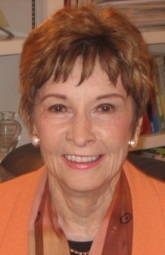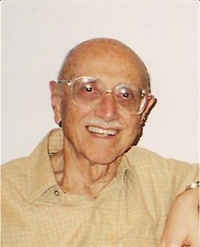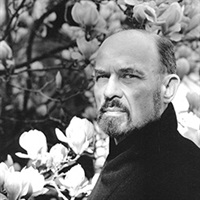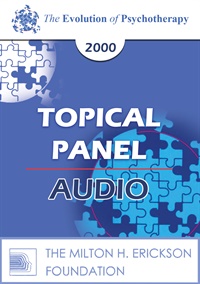EP00 Topical Panel 14 - Patient/Therapist Relationship - Ray Corsini, PhD; Peggy Papp, ACSW; Judd Marmor, MD; Irvin Yalom, MD
- Average Rating:
- Not yet rated
- Topic Areas:
- Topical Panels | Therapeutic Relationship | Therapist Development
- Categories:
- Evolution of Psychotherapy | Evolution of Psychotherapy 2000 | Pioneers in Couples and Family Therapy
- Faculty:
- Ray Corsini, PhD | Peggy Papp, ACSW | Judd Marmor | Irvin Yalom, PhD
- Duration:
- 55 Minutes
- Format:
- Audio Only
- Original Program Date:
- May 28, 2000
- License:
- Never Expires.
Description
Description: This panel examines the changing nature of the therapist-client relationship, moving from traditional Freudian models to more interpersonal and collaborative approaches. Topics include the value of self-disclosure, maintaining boundaries, therapist-client friendships, ethical concerns, and the impact of personal values. The conversation also touches on internet-based therapy and the importance of recognizing the therapist’s humanity in fostering meaningful connections.
Moderated by Brent Geary, PhD.
Educational Objectives:
- To compare and contrast clinical and philosphical perspectives of experts.
*Sessions may be edited for content and to preserve confidentiality*
Credits
Handouts
| Timestamped Transcript (771.6 KB) | 17 Pages | Available after Purchase |
| Ericksonian Learning Snapshot (280.4 KB) | 3 Pages | Available after Purchase |
Faculty

Ray Corsini, PhD Related Seminars and Products
RAY CORSINI, Ph.D., was a retired Professor of Psychology, University of Hawaii. He had been in private practice for 35 years. Dr. Corsini has published over 60 books under 43 titles, including four encyclopedias and the most complete dictionary of psychology, and has written or edited 18 books in counseling or psychotherapy. He is listed in Who's Who in America, Contemporary Authors and the Biographical Dictionary of Psychology, 1997.
Raymond Corsini's training was diverse. He received a BA and MA at the City College of New York, then did his doctoral training at Syracuse University, Cornell University, University of California, University of Wisconsin (all during the time of his work as a prison psychologist), and finally obtained a Ph.D. at age 41 from the University of Chicago under Carl Rogers. He met and interacted with J.L. Moreno, Fritz Perls, Victor Frankl, and Albert Ellis among others, but his main teacher was Rudolf Dreikurs, an Adlerian. He had three separate careers: as a prison psychologist for 15 years, then an industrial psychologist for ten years, and finally in private practice of psychotherapy and counseling for 30 years. Usually in the summers, he taught courses at over a dozen universities and full time at the University of Chicago, Illinois Institute of Technology, and the University of California at Berkeley.

Peggy Papp, ACSW Related Seminars and Products
PEGGY PAPP, A.C.S.W., is a therapist in private practice and Co-Director of the Brief Therapy Project at the Ackerman Institute for Family Therapy in New York City. She is recipient of the lifetime achievement award from the American Family Therapy Association and the award for distinguished contribution to Marital Family Therapy from the American Association for Marital and Family Therapy. Her latest book is Couples On the Fault Line.

Judd Marmor Related Seminars and Products
Judd Marmor, MD, was an American psychiatrist known for his role in removing homosexuality from the American Psychiatric Association Diagnostic and Statistical Manual of Mental Disorders. Judd was an adjunct Professor of Psychiatry at the University of California in LA, was Franz Alexander Professor of Psychiatry at the University of Southern California School of Medicine. he has practices medicine for more than 50 years, having graduated from Columbia University College of Physicians and Surgeons in 1933. He is past president of the American Psychiatric Association, American Academy of Psychoanalysis, and The Group for the Advancement of Psychoanalysis, and The Group for the Advancement of Psychiatry. He is recipient of the Bowis Award for Outstanding Achievements in Leadership in the Field of Psychiatry from the American College of Psychiatrists and the Founders Award from the American Psychiatric Association. Dr. Marmor served on the editorial board of 14 journals.He authored five books and co-authored one. He has written or co-written more than 300 scientific papers. Much of his writing has been on psychoanalysis and human sexuality.

Irvin Yalom, PhD Related Seminars and Products
Dr. Yalom is a Professor Emeritus of Psychiatry at the Stanford University School of Medicine. His major areas of interest are Group Psychotherapy and an existentially - inter-personally based individual therapy. In recent years, he has taught via narrative using short stories and novels to teach the art of psychotherapy.
Dr. Yalom was the recipient of the first ever Lifetime Achievement Award presented by The American Group Psychotherapy Association (AGPA) at the 75th meeting on March 6, 2017 in New York City.


